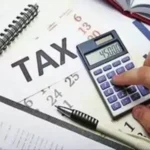Environmental Taxes in Vietnam
Environmental taxes are an important tool for promoting sustainable development in Vietnam. By making polluting activities more expensive, these taxes incentivize companies and individuals to reduce their environmental impact. Vietnam has implemented various environmental taxes in recent years as part of its efforts to balance economic growth with environmental protection.
Types of Environmental Taxes in Vietnam

Vietnam levies several different types of environmental taxes:
- Natural Resource Tax: This tax applies to the extraction of natural resources like oil, gas, coal, minerals, forest products, and water. The tax rates vary depending on the resource.
- Environmental Protection Tax: Implemented in 2012, this tax is levied on products and activities that negatively impact the environment, such as gasoline, coal, plastic bags, pesticides, and discharge of wastewater.
- Emissions Fees: Factories, production facilities and vehicles that emit air pollutants, wastewater or solid waste must pay emission fees. The fees are based on the volume and toxicity of the pollutants.
- Carbon Tax: Vietnam is considering implementing a carbon tax in the future to put a price on greenhouse gas emissions and combat climate change. This would make carbon-intensive fuels and activities more expensive.
Impact of Environmental Taxes

Environmental taxes have had a positive impact in Vietnam so far. They have raised significant revenue for the state budget, which can be invested in environmental protection measures. The taxes have also incentivized businesses to adopt cleaner, greener production methods and technologies to reduce their tax burden.
For example, the Environmental Protection Tax on plastic bags, which went into effect in 2012, has dramatically reduced plastic bag usage. Many retailers have switched to reusable or biodegradable bags. Consumers have also shifted their habits, increasingly bringing their own shopping bags.
However, environmental tax rates in Vietnam are still quite low compared to some other countries. There is room to increase the taxes to further drive environmentally-friendly behavior. Some have also criticized that the taxes disproportionately impact lower-income households.
Challenges and Next Steps

Implementing and enforcing environmental taxes does come with challenges. Regulators must strike the right balance in setting tax rates high enough to change behavior but not so high as to overly burden businesses and consumers. Effective monitoring and collection systems are also crucial.
Looking ahead, Vietnam is set to expand and refine its environmental taxation policies. Priorities include restructuring the Environmental Protection Tax, implementing a carbon tax, and integrating environmental taxes with other policy tools like green bonds and payments for ecosystem services.
At JobinVietnam.net, we believe environmental taxes are a win-win, promoting a cleaner environment and sustainable economic development. As Vietnam continues to modernize its economy, getting these policies right will be key. Both businesses and individuals have an important role to play in the transition to a greener future.
Property Tax in Vietnam

Another important tax to consider in Vietnam is property tax. Property taxes are levied on a property’s value and are paid by the owner. In Vietnam, property taxes come in a few different forms:
- Land Use Fees: Owners must pay an annual fee for the right to use land. The fees are based on the land area, location and purpose of use (residential, commercial, agricultural etc).
- Land and Housing Taxes: Owners of residential property must pay tax based on the property’s value. The tax rates are progressive, meaning more valuable properties are taxed at higher rates.
- Capital Gains Tax: If you sell a property for a profit, you are liable for capital gains tax on the net gain. The tax rate is a flat 20% in most cases.
Property taxes can be a significant expense for owners in Vietnam. However, they also serve important functions, providing revenue for local governments to invest in infrastructure and public services. To learn more about navigating property taxes in Vietnam, read more on: Property Tax in Vietnam
I hope this article meets your needs! Let me know if you would like me to modify anything. For personalized advice on working in Vietnam, contact JobinVietnam.net via phone, Zalo or WhatsApp. Our expert team is always happy to help!


